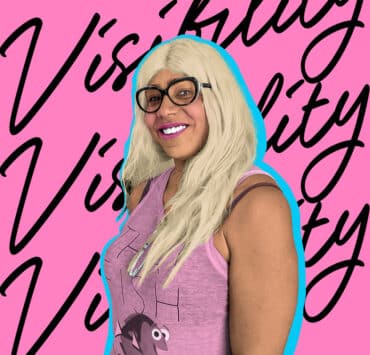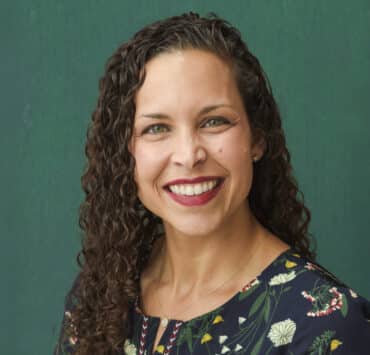|
Getting your Trinity Audio player ready...
|
Last year, I learned Jennifer Lopez was working with Bill Condon on an upcoming musical film version of Kiss of the Spider Woman. They were on the hunt for the lead actor to play “Luis Molina” opposite Diego Luna’s character.
According to the casting breakdown, the role “presents as an openly queer and effeminate gay man but may be on the nonbinary/trans femme spectrum” and mentioned that they were looking for an unknown actor.
I immediately sent it to three Latino actors I know. One (Tonatiuh) responded: “Thank you. I will send this to my team right now. Good looking out.” A few months later it was announced that Tona had booked the part. That part belongs to him, and not “looking out” isn’t an option.
Hollywood has been called out recently for a lack of Latine talent in front of and behind the camera and for many, it feels like we are going backward. If you dissect these numbers even further with the intersection of LGBTQ+ and Latine, then that demo gets even smaller.
Because we have it harder, we embrace the need to tap into our other interests in the industry. We embrace being a multihyphenate. Among those in the Visibility issue are Miguel Angel Caballero, Nancy C. Mejia, and Carlos Eric Lopez, who, like so many others, know what it is like to shift gears.
In fact, word is that our community is doubling down and promoting all areas of their talent. This has certainly caught fire in the past couple years. In 2023, Eva Longoria and Chris Abrego launched Hyphenate Media Group to help creatives in our community get their projects made and navigate through an industry that traditionally hasn’t embraced us.
It isn’t surprising when you think of how our ancestors needed to be multitalented, resourceful, and resilient. They knew how to do it all and, of course, had that infinite hustle.
I often think of something Longoria said when she was on the press tour for directing the Hulu hit movie Flamin’ Hot, after explaining her struggle to get hired to direct the film and all of the hurdles that came after she earned the job. “I knew I was gonna have to work twice as hard and out-hustle everybody,” she said in her interview with The Times. “And I’m OK with out-hustling anybody in the room.”
This is the exact mentality that I live by, and I know that the rest of my family that are LGBTQ+ and Latine in the entertainment industry do as well. We don’t have a choice. We also know that part of that hustle means advocating for each other in rooms they might not be in.
Looking back on my years at Warner Bros. Discovery, one of the items I am most proud of is my work in the transgender space and specifically, the trans Latine space. I have partnered with Trans Latin@ Coalition and Flux, met with their members, and introduced them to studio execs. I love mentioning Bamby Salcedo’s name in a room, or talent like Nava Mau, an Emmy nominee for her role in Netflix’s Baby Reindeer.
Just as crucial are our allies in the community storytelling space because we can’t do this alone. Organizations such as National Hispanic Media Coalition, National Association of Latino Independent Producers, The Imagen Foundation, and Nosotros all regularly make sure that LGBTQ+ Latinos are always front and center in their programming.
What about the rest of our allies?
If you enjoy watching movies, head over to Amazon Prime to check out Davi Santos in Something Like Summer and Taylor Zakhar Perez in Red, White & Royal Blue, which was written, directed, and produced by Matthew Lopez, who is openly gay. Then there is In the Summers from queer Colombian American writer and director Alessandra Lacorazza. In the Summers took Sundance and Tribeca film festivals by storm in 2024 and opened the LA Latino International Film Festival, while racking up numerous awards.
More of a TV fan? There’s Rafael Silva in 9-1-1: Lone Star, Vico Ortiz in Our Flag Means Death, and multihyphenate singer and actress LaRhonza Lee Rodriguez in Never Have I Ever. You can find representation across broadcast, cable, or streaming platforms, but with series constantly facing cancellations, those numbers begin dwindling fast.
In its Where We Are On TV 2023–2024 report, GLAAD noted that there are 468 LGBTQ+ characters across all platforms. Nine percent (forty characters) are Latine, which is a decrease from 14 percent in the 2022-2023 television season. These numbers must improve because Latine audiences over-index in streaming views. All platforms need to lean into more representation or risk losing a coveted demo, which means loss of revenue at the end of the day.
Many allies reading this are wondering, why should I care about this representation if I’m not LGBTQ+? I want you to think of that nephew you might not know about, that fifteen-year-old transgender girl who lives next door, or perhaps someone in your class if you are an educator. Without representation on the big and small screens, members of our community feel unseen or isolated and lean into behavior that isn’t productive or can cause them harm.
Do we really want that? After all, aren’t we all “Birds of a Feather” in one way or another?

